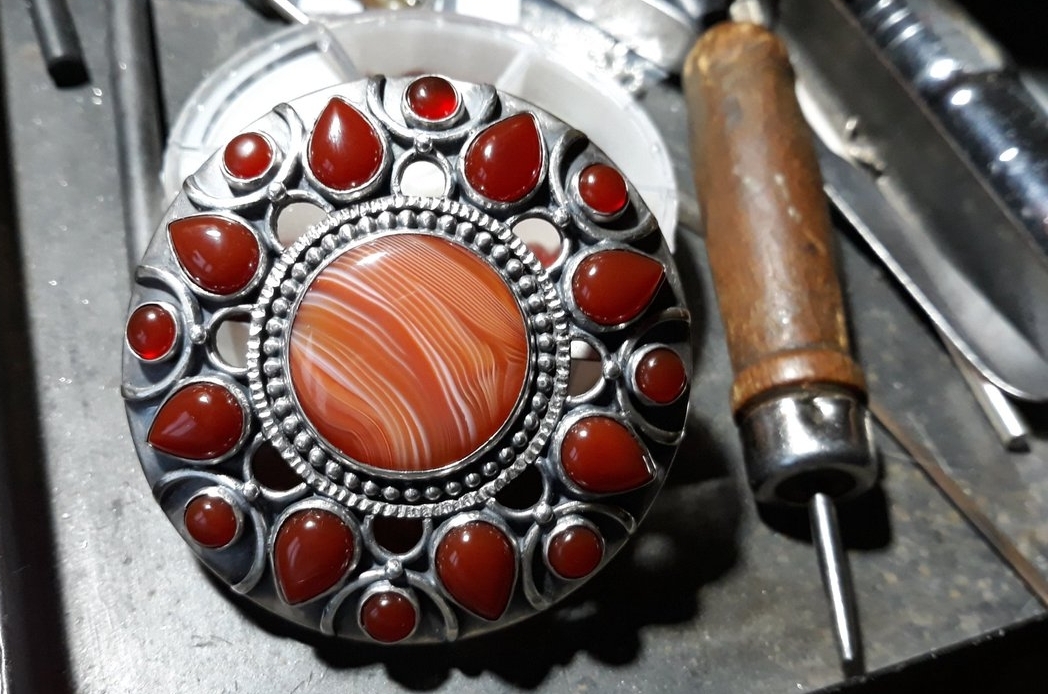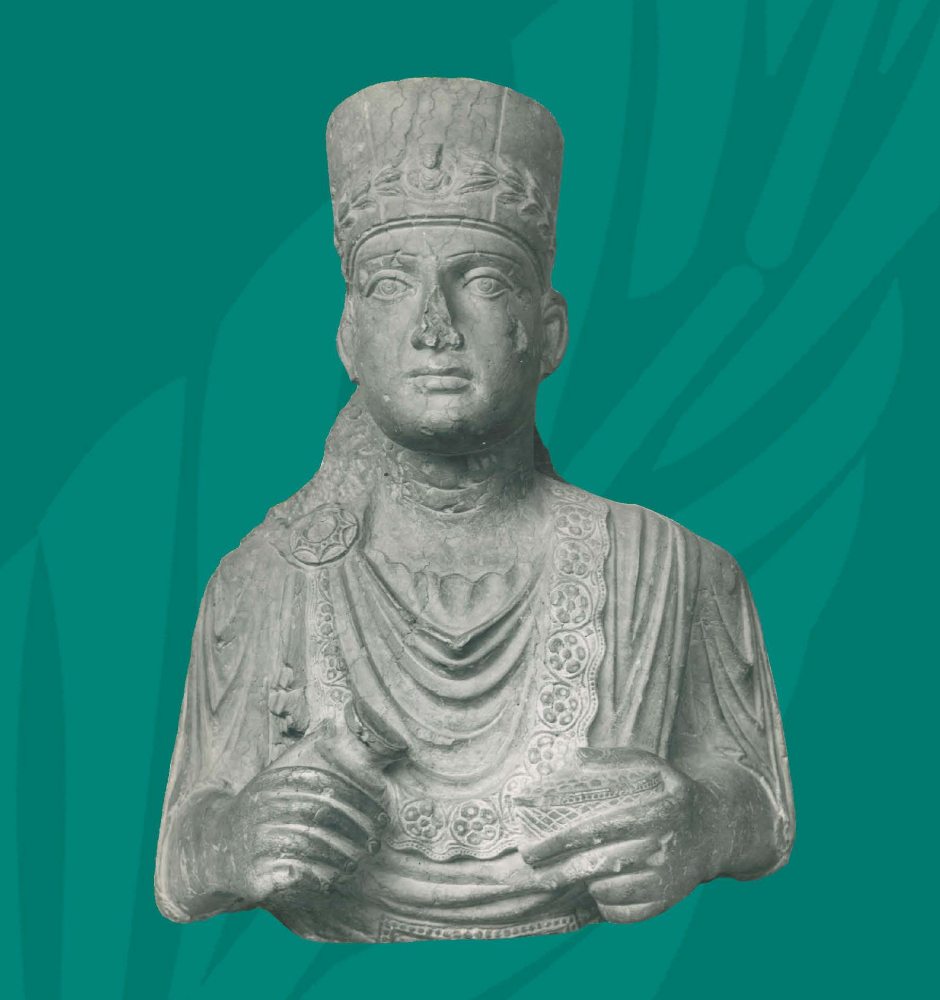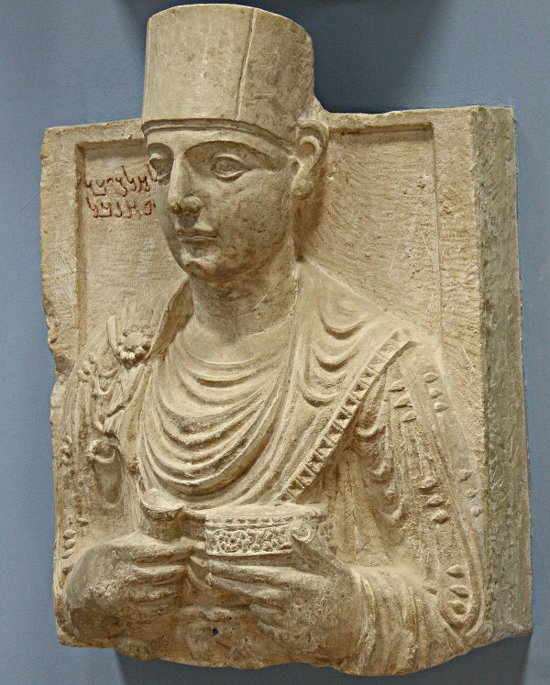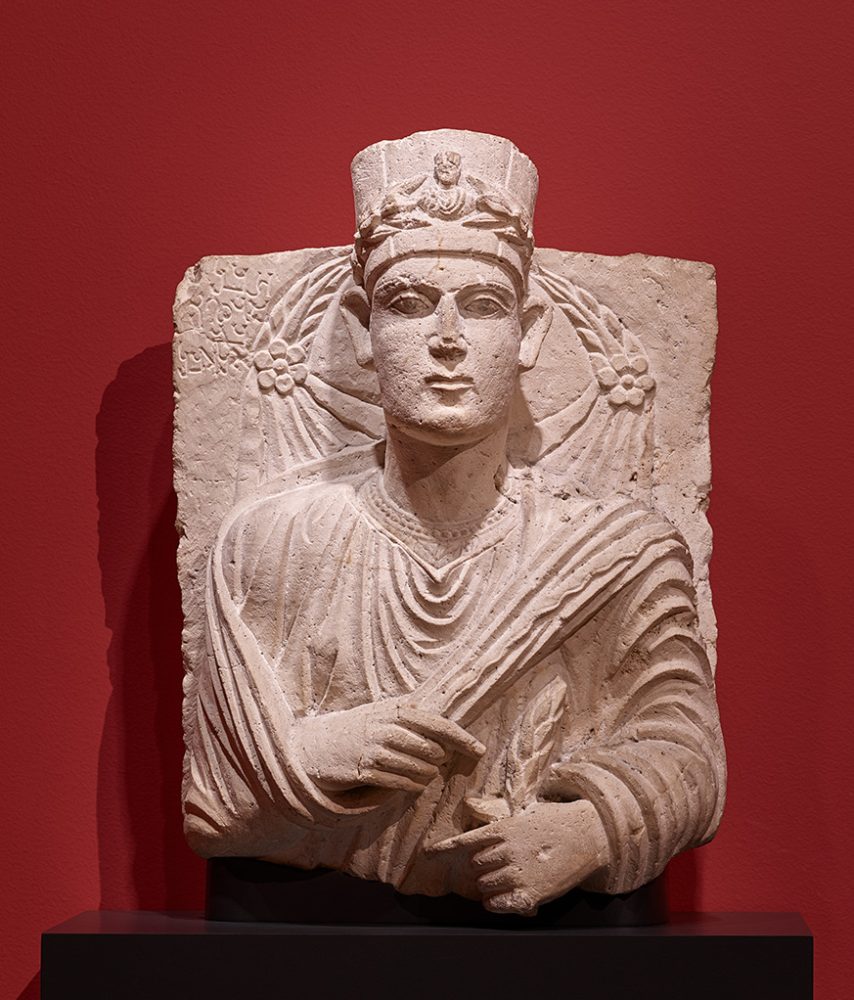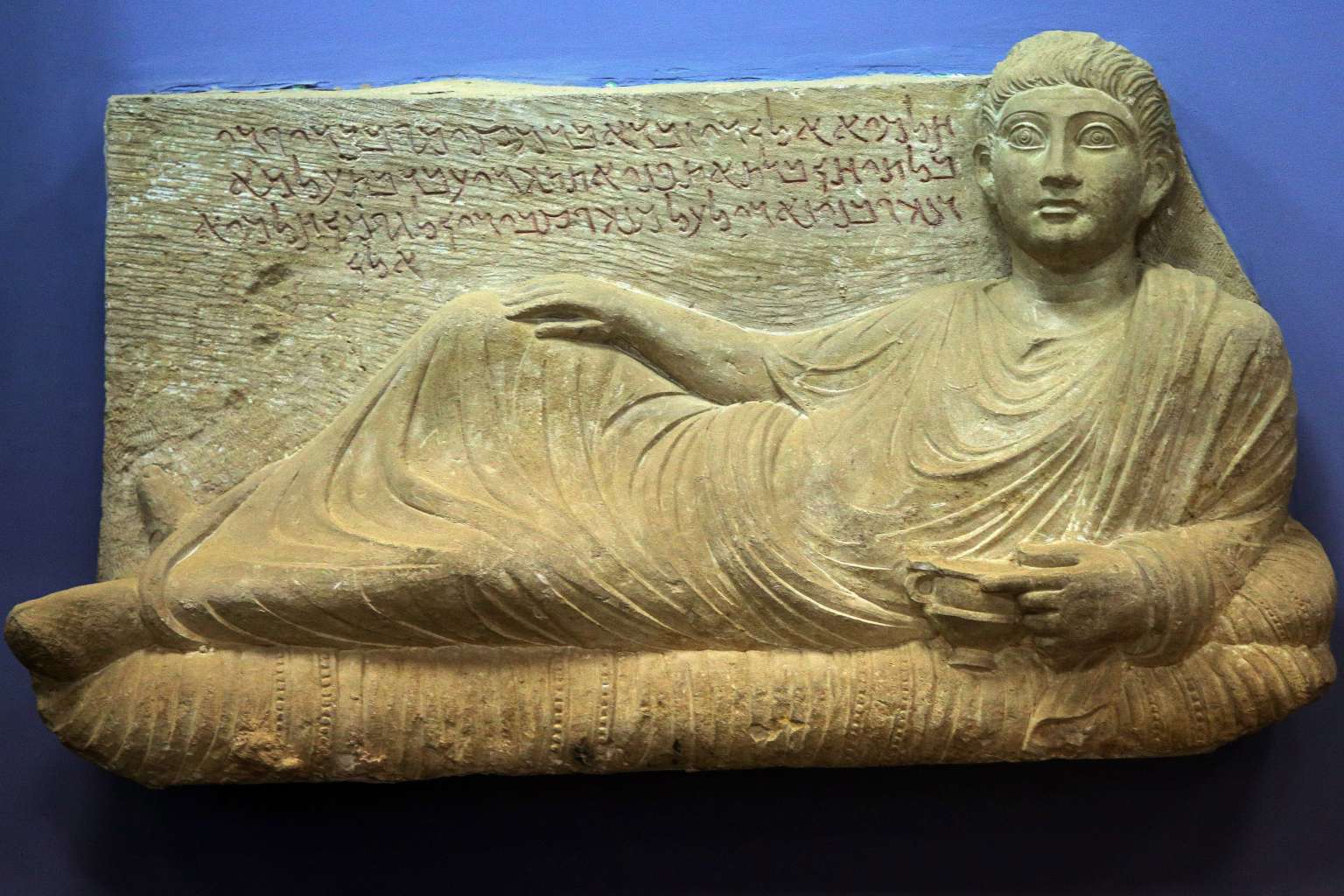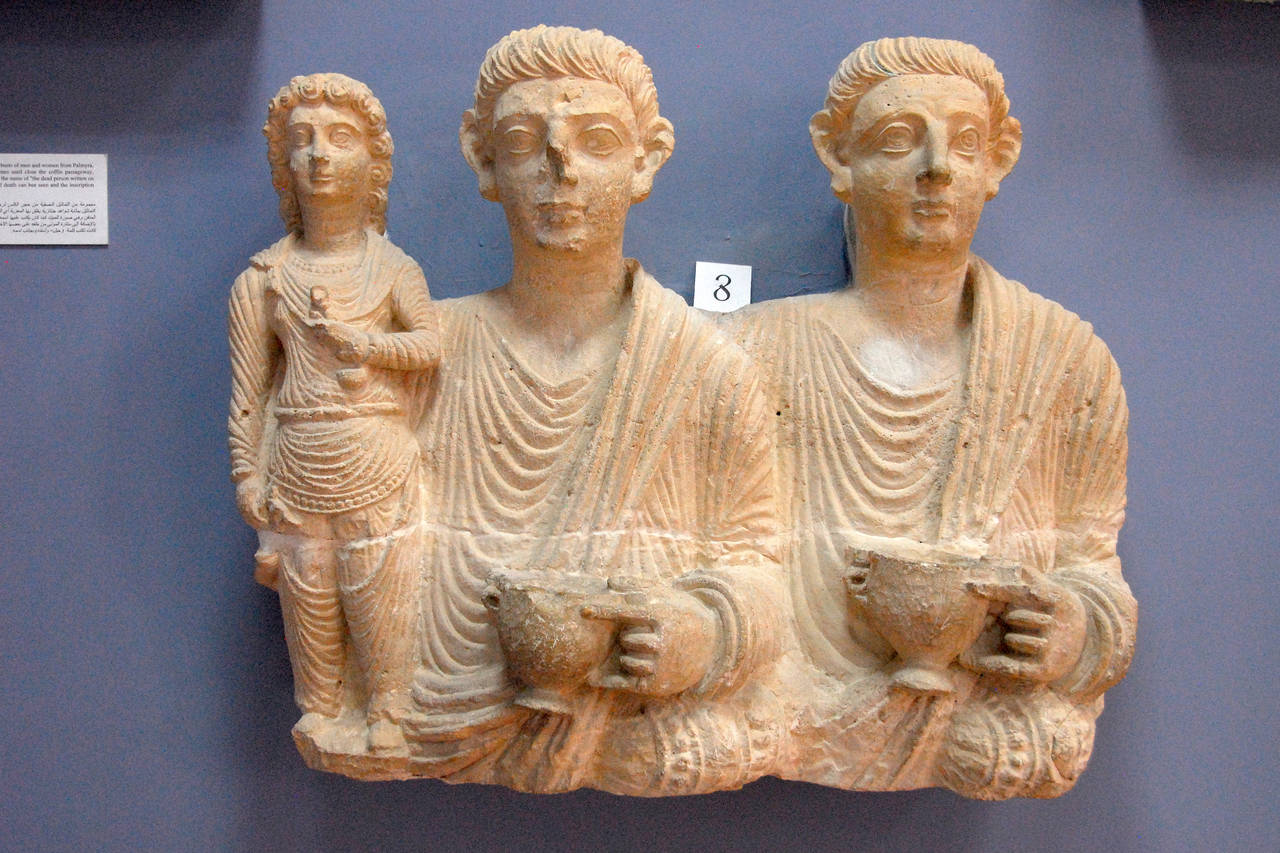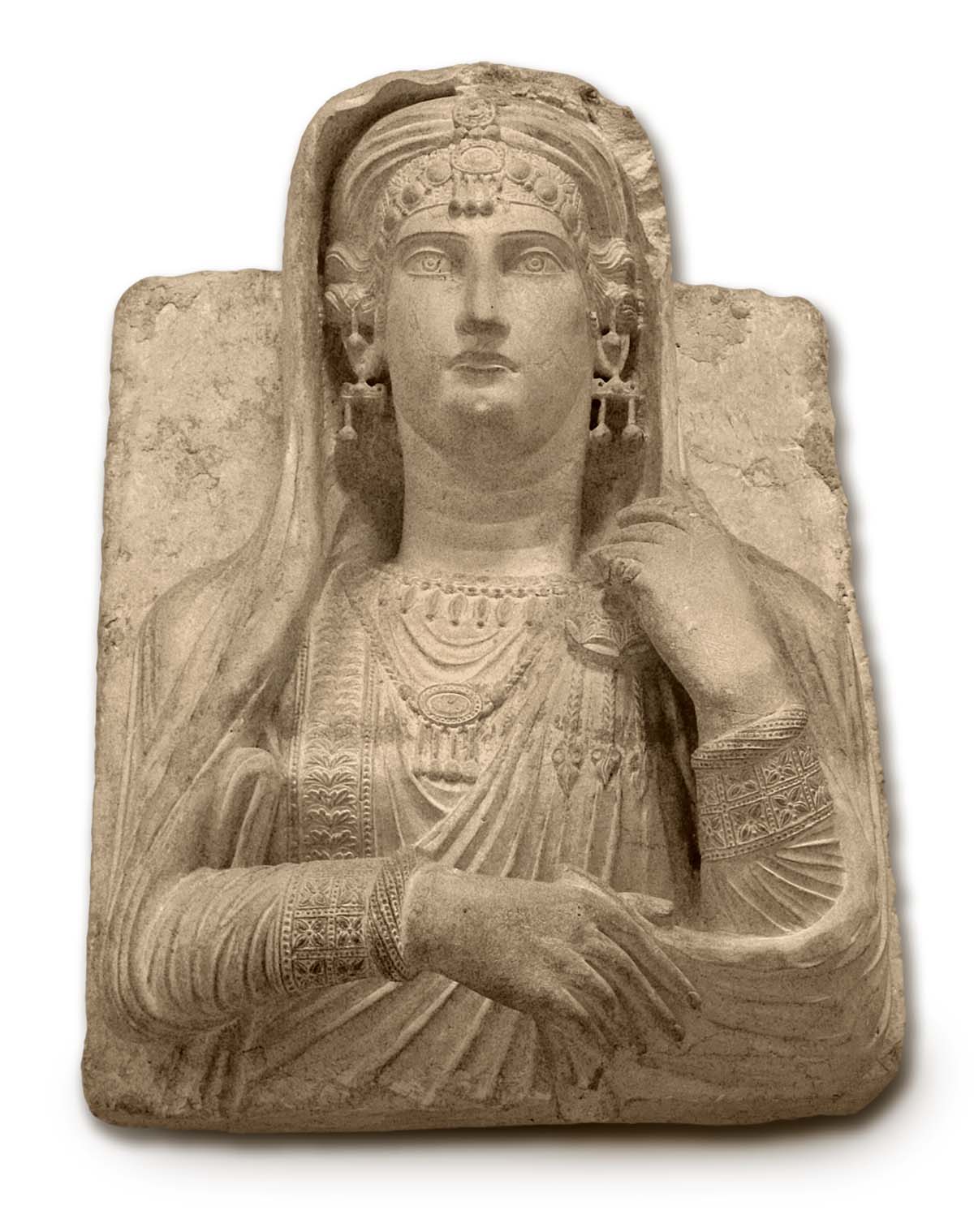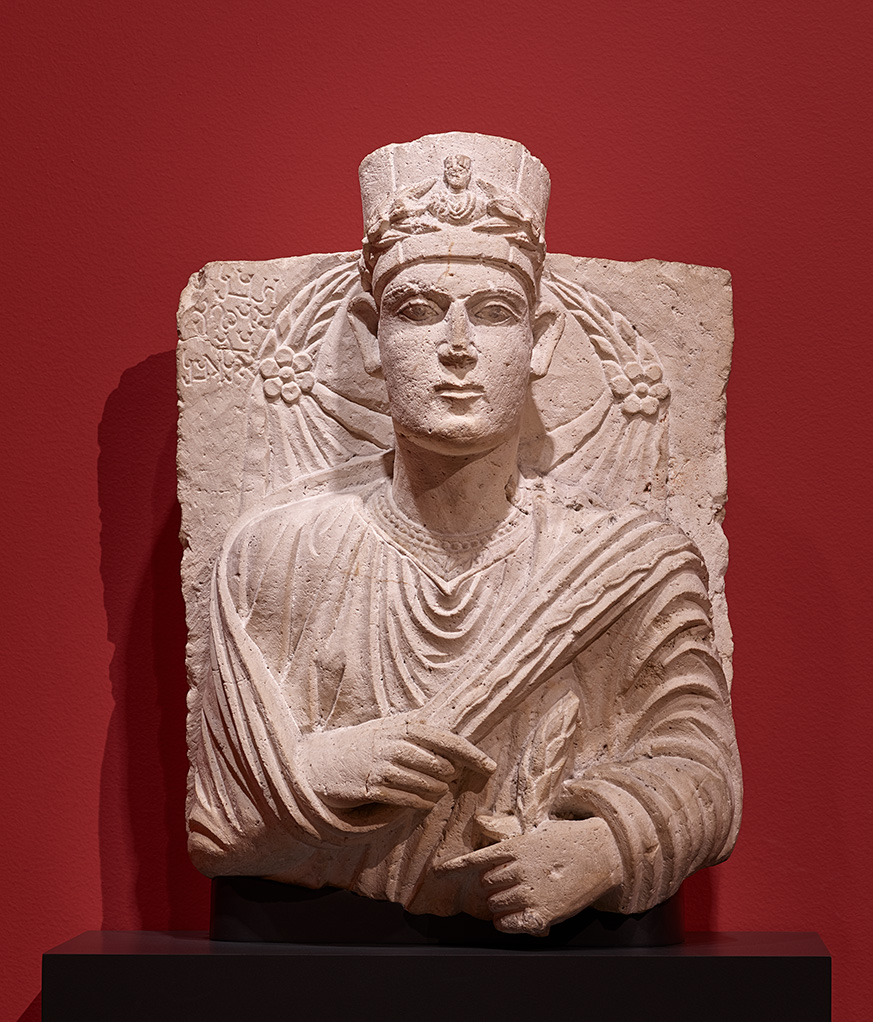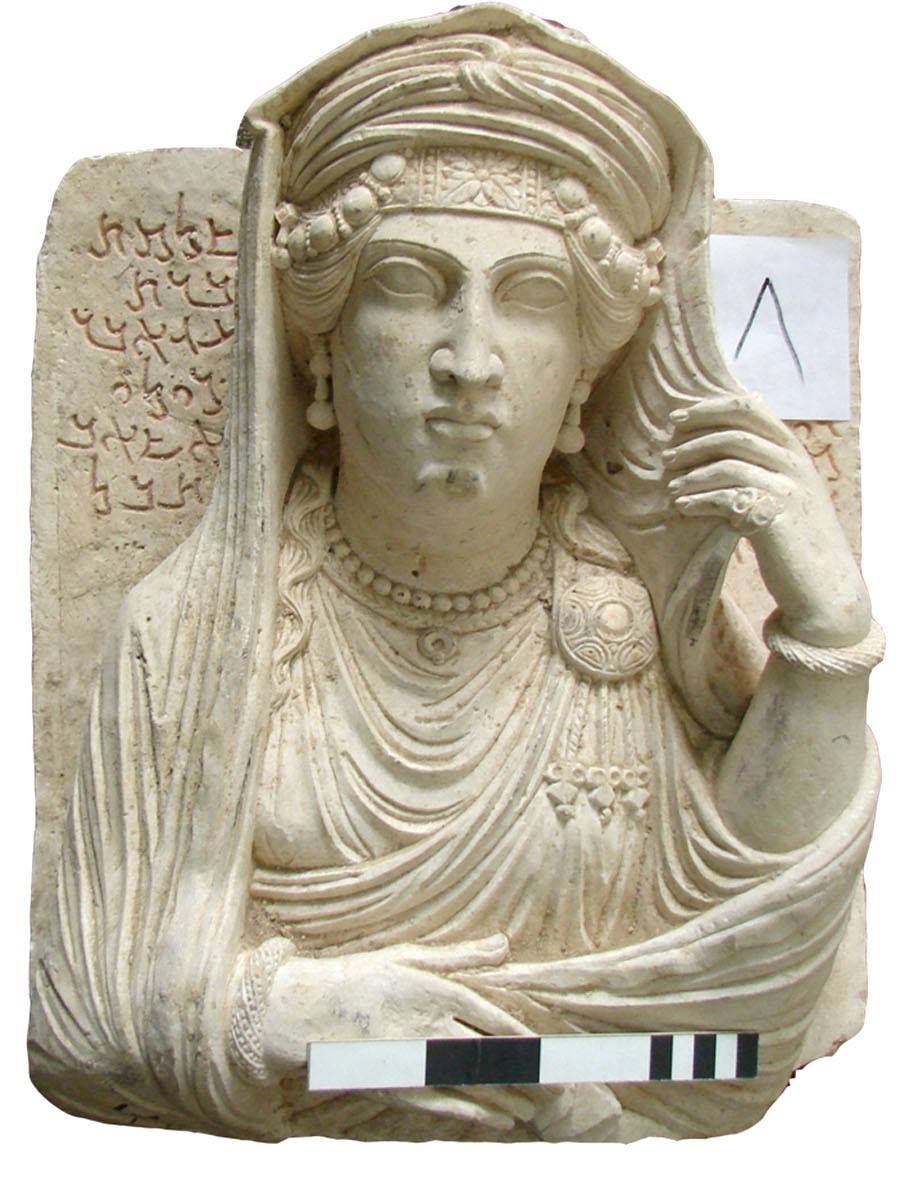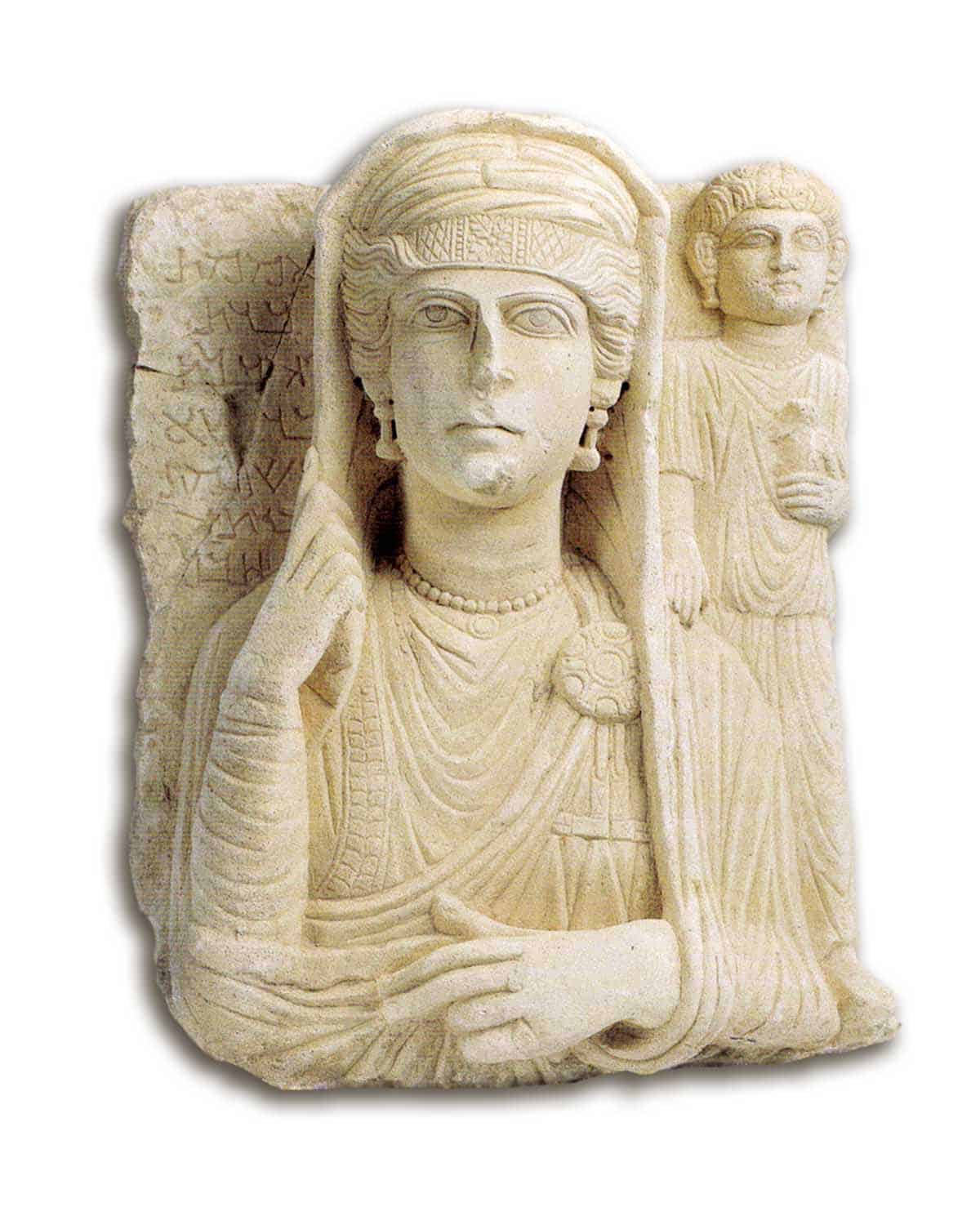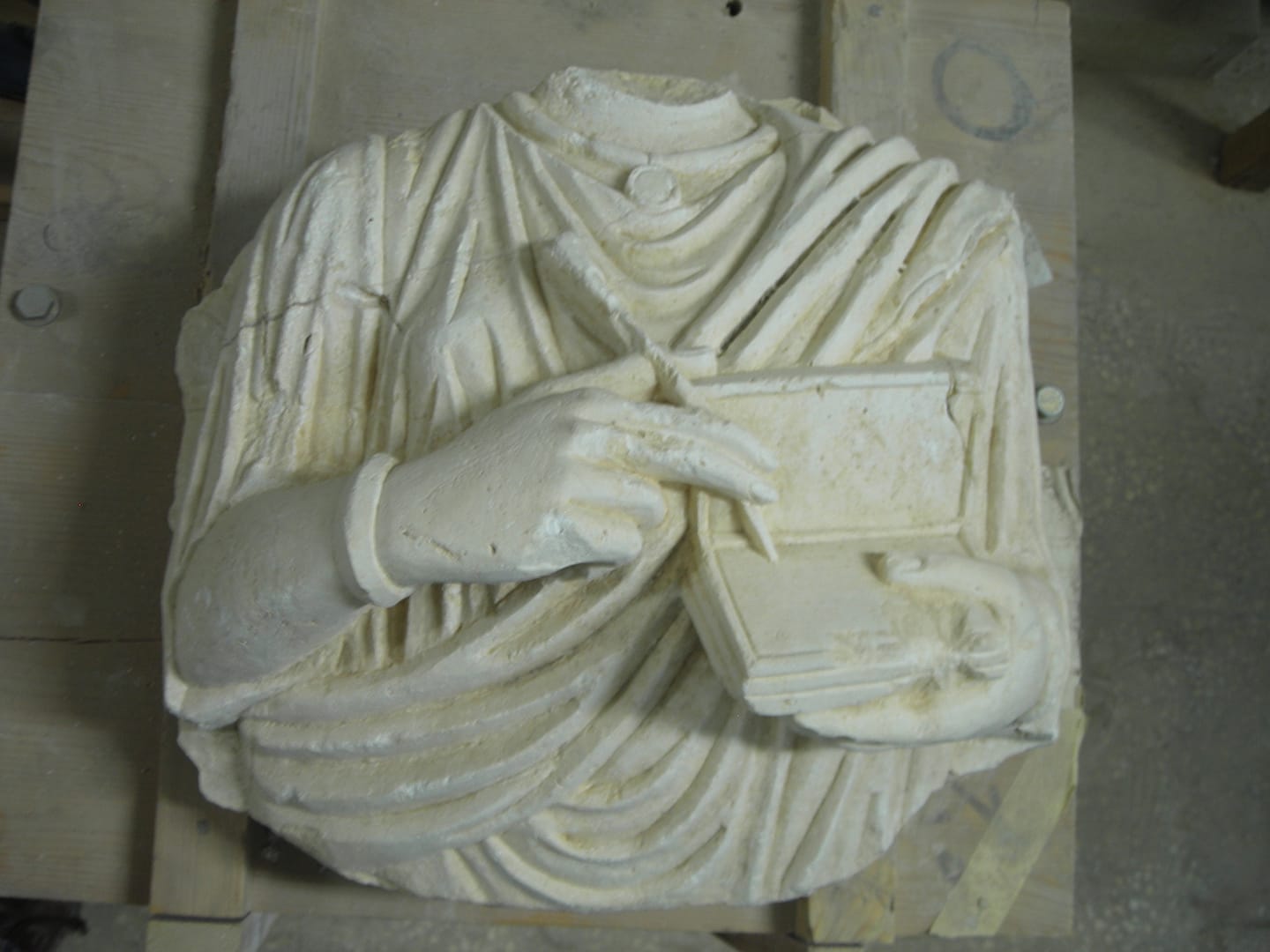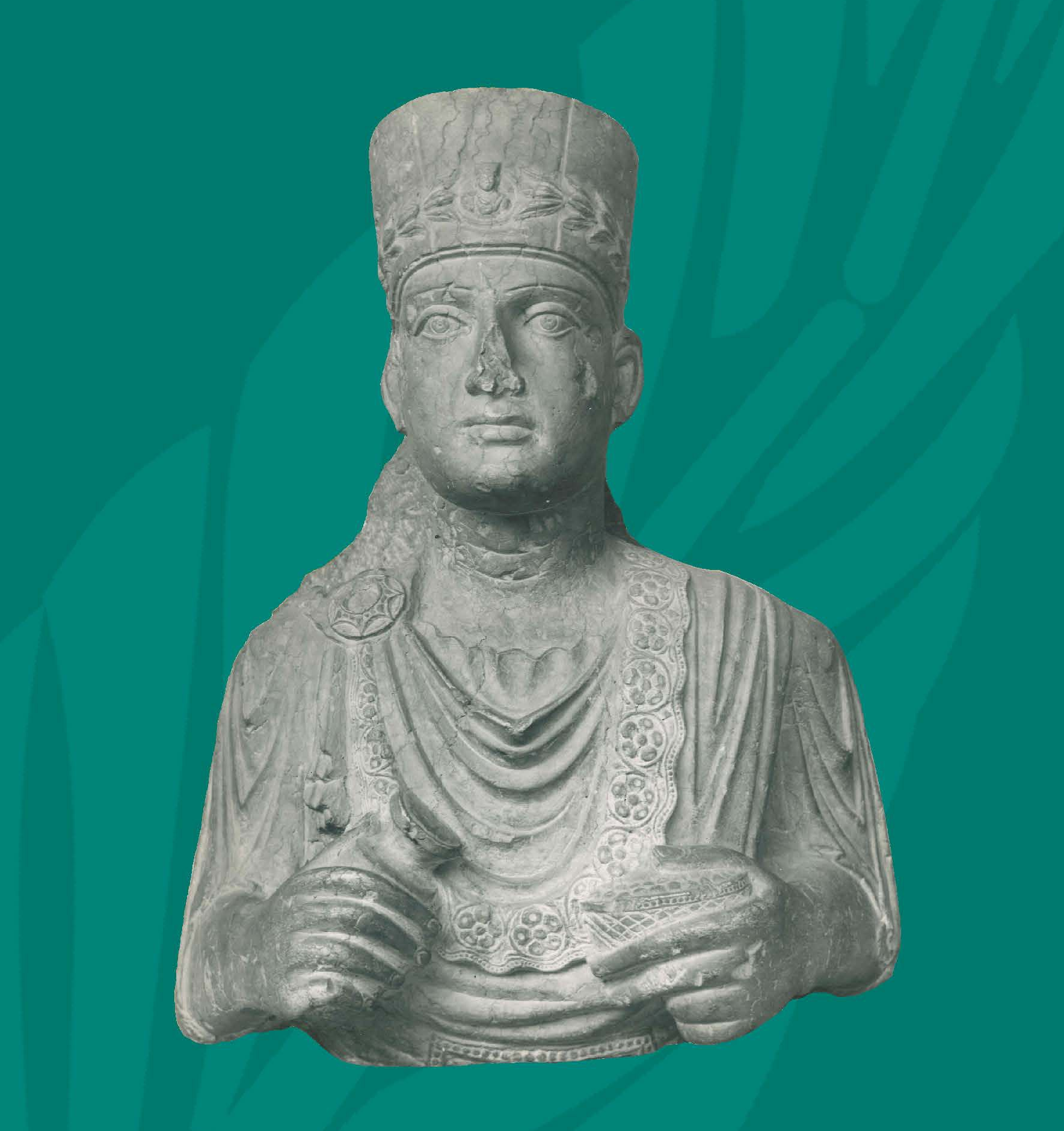According to a report by the DGAM, the tomb of Artaban (Tomb number 5, discovered in 1958 and restored by a Syrian mission in 1964–1966) suffered destruction and looting. Looters were able to break through the entrance of the tomb and enter by expanding a vent opening. They stole all 22 funerary busts from the tomb and the head of a child depicted in a funeral banquet scene that was exposed in the tomb.
[Palmyra: Heritage Adrift
Detailed report on all damage done to the archaeological site between February 2012 and June 2015
Cheikhmous ALI http://www.asor-syrianheritage.org/wp-content/uploads/2015/06/Palmyra_Heritage_Adrift.pdf]
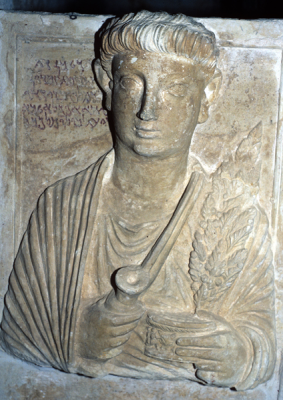
Photo and info Prof. Michael Fuller
http://users.stlcc.edu/mfuller/palmyratombs.html
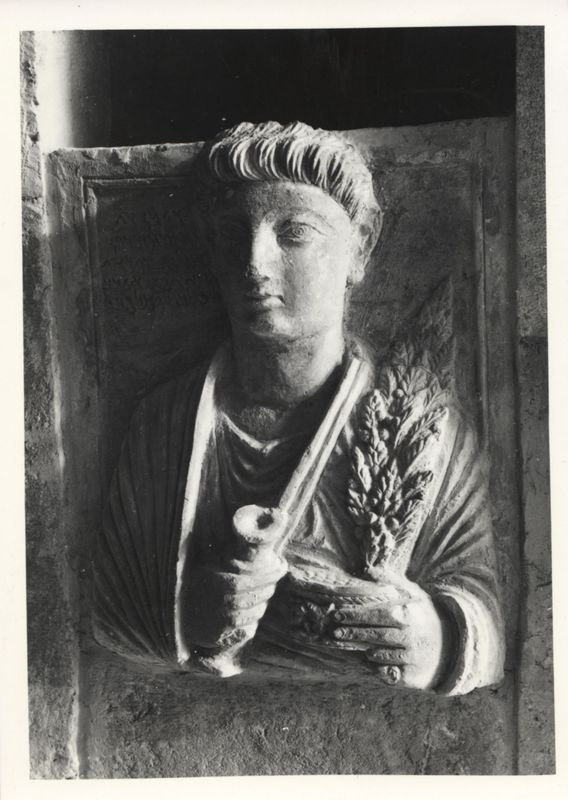
[University of Minnesota?]
Sacerdotal Activities and Parthian Dress in Roman Palmyra (Chapter 6 in Reading a Dynamic Canvas); Maura Heyn https://www.academia.edu
http://archiv.ub.uni-heidelberg.de/propylaeumdok/2607/1/Sadurska_L_art_et_la_societe_1994.pdf
Women of Palmyra [Femmes de Palmyre]; Jean-Baptiste Yon
In: Dialogues d’histoire ancienne 2018/Supplement 18 https://www.cairn.info
Funerary bust discovered in the hypogeum of Artaban.
“this priest, Artaban, nicknamed Zabdûn, one of the only ones explicitly designated by an inscription, does not however bear the modius. At most, one could consider that Artaban carries in his left hand an incense box [pyxis] for the sacrifice and a balsamaire on the other side. For the rest, it is often difficult to ensure that other representations, without modius, indicate unmistakably the priestly status of the figure.”
“Another solution would be to interpret the inscription in a slightly different way, by giving the designation ‘pkl’ ṭb’ dy ‘glbwl wmlkbl “good priest of Aglibôl and Malakbel”, not to Artaban himself, but on his grandfather Iarhaî Nîkâ yrḥy nyq’ , i.e. the names which immediately precede the indication of status. It would probably be a little soliciting registration”
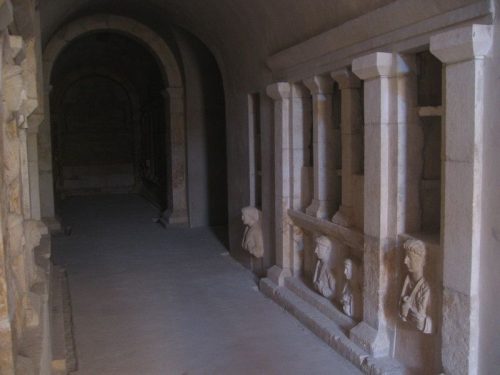
Photo source Centro de Estudios Artísticos Elba https://www.pinterest.fr
